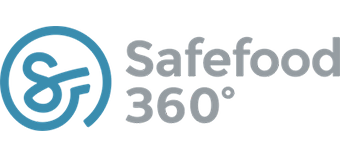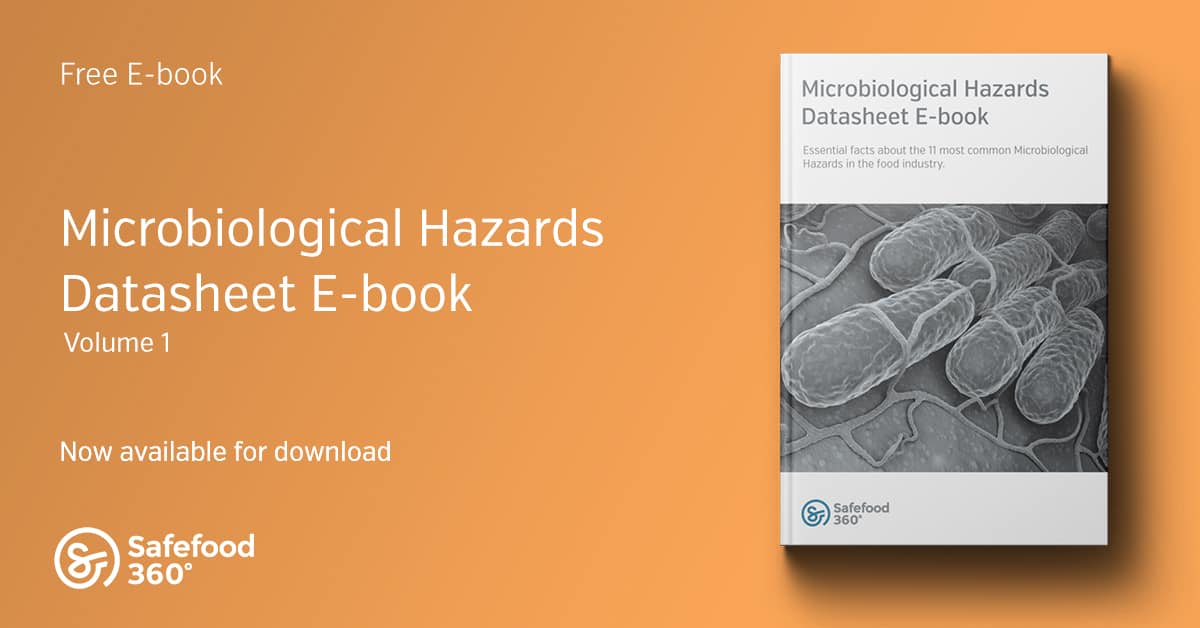November 2021 Food Safety News and Industry Round-up
New GFSI benchmark for food safety auditors
The Global Food Safety Initiative (GFSI) has set a benchmark for Professional Recognition Bodies recognizing Food Safety Auditors in response to increasingly complex requirements applying to auditors.
By harmonizing the standards for auditors across the industry, GFSI hopes to safeguard the profession and elevate the accessibility and perception of food safety auditing.
USDA update
New undersecretary of food safety
The US Department of Agriculture nominated Jose Emilio Esteban on November 12th for the position of undersecretary for food safety.
Esteban has held the position of Chief Scientist at USDA’s Food Safety and Inspection Service since 2018.
Prior to joining the USDA, he worked at the CDC as an epidemic intelligence officer, staff epidemiologist and Assistant Director of the Food Safety Office.
Meat and poultry inspection ends a record-setting year
The USDA have revealed that not only did the cost of poultry and livestock rise in 2021, but so too did the number of inspections.
The Food Safety and Inspection Service announced that in the final quarter of fiscal year 2021, it oversaw nearly 40 million livestock and 2.5 billion birds.
With over 6,200 meat and poultry inspectors providing services across the country, many do not pass.
Over 254,000 livestock and 10.7 million birds were condemned in the 2021 fiscal year.
Additionally, FSIS brought actions against ten large establishments.
FDA release FSANS interactive data tool
The US Food & Drug Association released an interactive web-based data tool which will allow users to interact with results from its Food Safety and Nutrition Survey data.
FSANS Explorer users can explore the relationship between responses to survey questions and respondent demographic characteristics, visualize responses to survey questions and perform statistical tests that measure the strength of response relationships.
See how to explore data with the Safefood 360° Self Service Tool
Global Food Security Index Results released
The Economist Impact’s Global Food Security Index (GFSI) has moved Canada to seventh with the US in ninth in the latest edition of a report that measures food security.
The evaluation, that measures how well a country meets its population’s calorific and nutritional needs, covers the drivers of food security in 113 countries based on affordability, quality and safety, and natural resources and resilience.
While scores across all nations dropped due in part to the Covid-19 pandemic, the results note a positive increase for both the US and Canada who previously ranked 11th and 12th.
At the top of the rankings, Ireland took over the top spot from Finland, followed by Austria and the UK.
To see the rankings, click here.
E.Coli outbreak linked to organic spinach was distributed nationwide
A new E.coli O157:H7 outbreak linked to two brands of prepackaged baby spinach, distributed nationally across the US, spans seven states and 10 people are reported ill.
No deaths have been reported according to the CDC.
The FDA is now investigating the farms linked to the spinach and working to determine if additional products may be contaminated.
No recalls have been reported at this time.
More patients are likely to be reported due to the longevity of confirmation testing time and reporting to government in officials – this process can take months in some cases.
Read blog: Why do leafy green recalls keep happening and what can be done about it?
Microgreen seeds recalls increase over Salmonella concerns
Certain broccoli seeds have been recalled by a third Canadian company in the month of November due to potential Salmonella concerns.
There are no reported illnesses associated with the consumption of the product at this time.
Infants, children, seniors and people with a weakened immune system and are at a higher risk of contracting Salmonella.
Those who have recently purchased microgreens should check the recall status and throw out or return immediately.
Learn more about Salmonella with our free to download datassheet
European updates
EFSA examine science behind nutrient profiling
The European Commission opened a public dialog on front-of-pack nutritional labelling and health claims to finalize scientific advice that will help to develop an EU-wide scheme.
The Commission asked the European Food Safety Authority to provide scientific advice of nutrients and non-nutrient food components that are of importance for European public health.
It additionally asked for assessments on food groups with important roles in European diets and a guide to what nutrients should be included in nutrient profiling.
While EFSA has opened the conversation, asking for nutritionists and other experts for input, the consultation is not evaluating or proposing what profiling model should be adopted.
For more on labeling from Taiwan

EU lifts ban on poultry feed using animal by-products
The EU have lifted a ban on the use of animal by-products in poultry feed that has was first introduced in response to the 1994 BSE crisis.
A unanimous vote earlier in the year called for the ban to be removed which had been extended to all farm animals in 2001.
The decision to lift the ban comes in support of the European Green Deal and the Farm to Fork strategy which encourage by-products for sustainability, in addition to the risk of cross-contamination from infected feed proving to be slim.
INFOSAN note another record quarter of reports
From July to September, the International Food Safety Authorities Network (INFOSAN) was involved in 65 global incidents with Salmonella being part of 46 incidents, followed by Listeria and E.coli.
This number is up from 63 and 56 incidents in the previous respective quarters.
A large part of the incidents were related to the multi-country Salmonella Braenderup outbreak that affected more than 350 people.
The majority of the remaining cases involved a physical hazard – a piece of glass or plastic – or included an undeclared allergen.
Denmark launches education campaign to lower risk of norovirus
Ahead of the holiday season, The Danish Veterinary and Food Administration launched a campaign to lower the risk of exposure to norovirus when dining out.
The campaign focuses on how staff in professional kitchens, cafes, canteens, restaurants and delicatessens can help curb infections by staying home when feeling unwell or having signs of the illness and continuing to wash hands with warm water and soap.
The infection, which typically peaks at the end of the year, is highly contagious and spreads from contaminated foods, especially berries, vegetables and oysters.
Watch the Danish educational video
Food Safety Summit’s 2022 Conference Agenda released
The Food Safety Summit’s Educational Advisory Board has prepared an education program for the 2022 Food Safety Summit to be held in Rosemont, IL from May 9th-12th, 2022.
Leading experts will present critical insights on a range of topics including: cybersecurity, Covid’s lasting impact, food safety culture, working with regulators, internal audits, high profile recalls, technology enabled traceability and supply chain management.
The Food Safety Summit is the largest solutions-based conference and expo for the food industry in North America and explores the most critical food safety issues facing the food industry today.
Click here for the full agenda.
China reports more than 7,000 foodborne illness outbreaks in 2020
Throughout 2020, there were over 7,000 outbreak cases of foodborne illness reported in China, with poisonous mushroom consumed in the home the most prominent source.
Cases in private homes surpassed public cases for the first time in more than 5 years, and Chinese researchers are now calling for increased publicity to reduce the risk of at-home incidents.
China new evaluation shows higher food safety
Attempts to improve Chinese food safety systems between 2009 – 2019 have been deemed successful following the completion of a food safety indicator pilot project.
Having identified and monitored 40 indicators in the decade, the assessment has yielded a number of recommendations and will inform future indicators for other countries who embark on similar initiatives.









Leave a Reply
Want to join the discussion?Feel free to contribute!